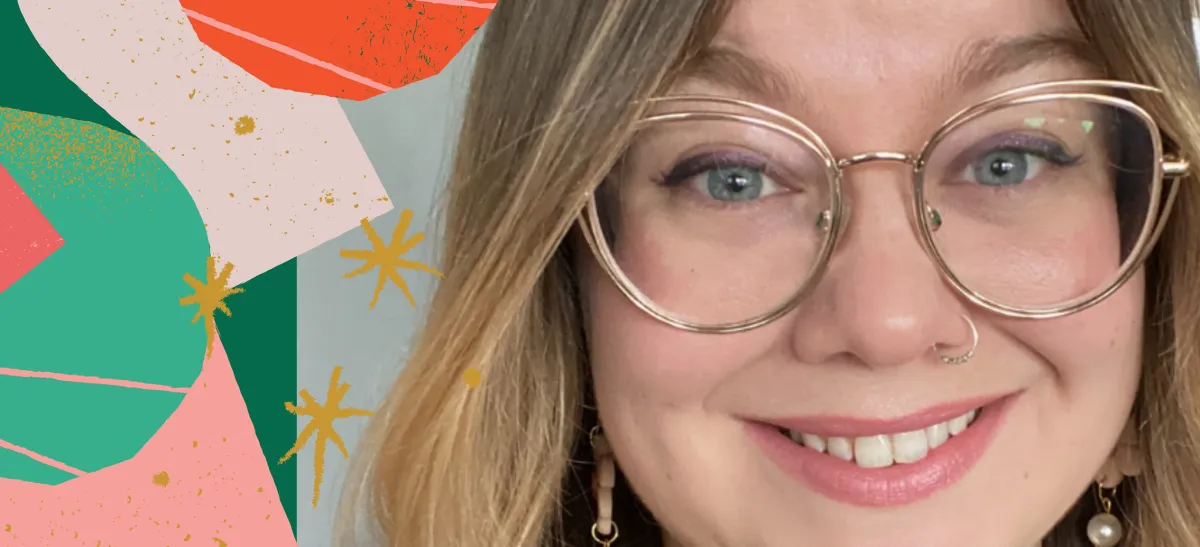My Coming Out: A Chat with Emma Flint
A lot of the time, our community, and those outside of it, are trying to catch other people out; it becomes this test of your validity and authenticity.

Access the Audio Read version of this article directly on Spotify for Podcasters.
Welcome to the fifth instalment of My Coming Out, a monthly interview series sharing the unique stories of people all over the world, who came out as lesbian, gay, bisexual, transgender, queer, intersex, asexual, or questioning.
Coming out stories are as diverse as people. This series may inspire you, and make you laugh or cry. They also offer guidance for effective allyship of the LGBTQIA+ community. We hope they help you and your loved ones.
This month we chat with Emma Flint (she/they), a 30-year-old freelance writer and journalist, who identifies as genderfluid and abrosexual. Emma’s work can be found on Mercury mag, DIVA, Tribune, Indy Voices, Metro, Inverse, Digital Spy, and more. You can connect with Emma on Twitter here: @LiterateElf
The Spill: Hi Emma, please introduce yourself and how you identify
Emma Flint: For several years, I used to identify as a cis gendered lesbian, but as I’ve grown older and started to better understand myself, I identify as genderfluid and abrosexual. If you don’t know what abrosexuality is, it basically means that your sexuality fluctuates a lot – sometimes you identify as lesbian, other times bisexual, and so on. Your sexuality is in a state of flux, and you know what, that’s perfectly valid! My pronouns are she/they, though I’m happy for someone to refer to me as he too – much like my sexuality, my gender identity is extremely fluid too.
TS: So when did you know?
EF: Honestly, I think I always knew I was queer; I just didn’t comprehend what that really meant. As a 90s baby, I didn’t have much LGBTQIA+ content to immerse in so that I could better understand myself. So I used to tell myself I just really liked that girl because I wanted to be her friend… sometimes that was true, but often I really liked her because I wanted to be with her.
TS: When did you come out, and why?
EF: I didn’t come out until my first year at uni, which, if you know me, seems ridiculous – so many friends can’t believe it took me that long to realise my queerness. Still, while it probably took me longer to realise it than it should have, uni was the perfect place to come out because I was removed from the judgement of old friendship circles. My secondary school wasn’t exactly LGBTQIA+ friendly, so even when I was questioning my sexuality during sixth form, etc, I’d have never come out about it. Uni has that freedom of expressing yourself, as cliché as that sounds, so I seized that cliché and finally embraced my identity.
TS: How did you do it?
EF: In spectacular fashion, to be honest. I broke up with my serious boyfriend, immediately declared I was a lesbian, and just rolled with it. Luckily, my parents were very understanding about it, as were most of my friends – even my ex-boyfriend was supportive of it, though why, I’ll never know. Towards the end of our relationship, I had been a major arsehole to him.
Basically, I used as little tact as possible, which is very in-keeping with the impulsivity of my EUPD (Emotionally Unstable Personality Disorder).
TS: Did you do it once or several times?
EF: I don’t feel anyone ever comes out just once. Even if you never discover more about your identity, you’re always coming out whenever you meet someone new. But as for coming out in that big news kind of way, I’ve done it twice now: first when I came out as a lesbian, and then in 2020, when I came out as genderfluid. I’ve not really come out about being abrosexual because I tend to just refer to myself as queer, then explain my identity if and when I need to.
TS: How did people react when you came out?
EF: I found my coming out the first time a lot less problematic. Not that people were unsupportive when I came out as genderfluid, just more people didn’t seem to grasp what genderfluidity means. Most of my loved ones listened to what I had to say and took it on board, that was that, that’s who I am. But there were some friends who didn’t adapt to my genderfluidity so well, though I wouldn’t say they were rude, just ignorant.
TS: What were your fears or concerns before, or when you came out?
EF: A lot of people are worried about whether people like them or not, which I think is quite indicative of human nature, but I feel my EUPD makes that need to be liked ten times worse. As much as I try to tell myself I don’t care what people think, I also care so much that I lose sleep over it. My biggest fear was people suddenly not liking me, closely followed by them not believing me because I don’t look like the popular face of genderfluidity, or non-binary identity.
Even now, I still worry that people think I’m lying, or that they think I’m not queer enough, but now I tell myself that they’re the ones with the issue, not me. There isn’t one way to be anything.
TS: Do you have any frustrations or concerns about your community that you would like to address?
EF: One of the main ones, at least for me, is the way non-binary is so often understood as being androgynous, or that perfect blend of 50% man and 50% woman. There are people who fit that image, as you’d expect given how diverse our identities are, but there’s plenty of us who are very femme or masc presenting. My wearing a dress doesn’t mean I’m suddenly now a cis woman. But also, if I refer to myself as a woman, I’m allowed to do so, it doesn’t take away from my genderfluid identity.
A lot of the time, our community, and those outside of it, are trying to catch other people out; it becomes this test of your validity and authenticity. It’s such ugly behaviour, and it serves no purpose other than to create more harm and misunderstanding.
TS: How did coming out affect your life?
EF: Honestly, I’m not sure it affected my life in any profound way that caused strife; I was quite privileged in that way. Probably the biggest effect it’s had is having to deal with discrimination, as that can make just getting on with your life incredibly difficult. But again, I have more privilege than others within the community, so for the most part, my experience has been predominantly easy.
TS: Are you out at work, or your personal life, or both? Or some aspects of your life but not all?
EF: Being a freelancer has made being out at work really easy, which I’m grateful for, especially since coming out as genderfluid. Personally, I’m very out and proud, though I’m not sure I know any other way to be. Even if I didn’t feel 100% comfortable revealing my identity, I lack a filter that stops me from oversharing, even when I don’t want to, so keeping that part of myself hidden would prove hard.
TS: What are you the most grateful for now that you’ve come out, and about your community?
EF: I’m grateful for the support because, most of the time, it’s unconditional. There’s a lot of rogue elements in the queer community that want to spread hatred and bigotry, but for the most part everyone is extremely supportive of each other. Even when I’m going through a dark time, I know there’s a community of people who support me because we’re linked by our queerness, whatever form it takes.
I know that sounds very rose tinted, and again, I don’t want to ignore the problems that lurk within the LGBTQIA+ community.
TS: Do you have any regrets about how you came out, or other areas of your life related to your coming out?
EF: I regret being so all or nothing – I didn’t give myself time to really explore my sexuality before making a snap decision. We so often have this idea that you can only come out once, when nothing could be further from the truth. If I’d had taken the time to explore myself and my identity better, I feel I’d have realised more about my identity a lot sooner, and essentially saved myself years of confusion and not feeling 100% connected to who I am.
I should have given myself the nuance it deserved, but teenager Emma was running at lightning speed, wanting everything at once.
TS: What would you tell your younger self, before you came out? Is there anything you wish you had known?
EF: Come out sooner. Stop holding yourself back because you’re so worried about everyone else; those people don’t matter, and half of them won’t be there as you get older. Please don’t put your life and your identity on hold because you’re scared of losing people who don’t truly support you anyway.
Also, this isn’t a one time deal. You’re going to learn more about yourself, and some of it may feel at odds with what you originally thought, and that’s okay. You’re growing and learning, you don’t have to be perfect at this.
TS: What advice would you give people going through this, whether they are scared of coming out, going through this alone, or unsure of how to do it?
EF: Take the time to listen to yourself and how you’re feeling. It doesn’t make you any less valid if you can’t be “out and proud”, or if you’re unsure. Our identities aren’t set in stone, it’s okay to think you’re lesbian or gay, explore that, then realise you’re actually pansexual. We determine who we are and how we discover that, so don’t let anyone else diminish your experience.
TS: What are you the most proud of about your coming out, and in your life in general?
EF: Just that I’ve allowed myself to be me, unashamedly so. I’m not always kind to myself, but I’m proud that I’ve never been so cruel as to deny myself that freedom of identity expression and discovery.
TS: If you could, what would you like to change, whether in laws or culture, to make this a better experience for people? And to improve life for the LGBTQIA+ community?
EF: I just want less ignorance. The way society functions comes from a lot of misunderstanding, and a lack of empathy – most people only care if it relates to them in some direct way. Why do you have to live the same life as someone else to value and respect them? Most people are so stuck in their ways, refusing flexibility because it’s easier for them to be inflexible; it’s a self centred attitude that breeds intolerance.
TS: What advice would you give to people for them to be a supportive and effective ally when a loved one is coming out to them?
EF: Listen. The most important thing is to listen to what your loved one is saying, what they’re sharing with you about themselves. Secondly, you need to be willing to educate yourself because a lot of allies aren’t always great with their allyship; they may mean well, but that doesn’t mean they can’t still be harmful. Be willing to grow.
TS: What should people NOT do when someone comes out to them?
EF: Never ask them “When did you decide this?”. Being queer isn’t a decision, we don’t just flip a switch and decide to be this way, it’s who we are. If you weren’t aware of that part of us before, that’s because we live in a society that’s still intolerant to exploration of identities; heteronormativity is still the dominant mindset, even though it shouldn’t be.
TS: Are there any resources, organisations, websites or any content you would like to share, that helped you personally or could help others?
EF: Stonewall and Mermaids are two fantastic charities that share really helpful, supportive content. As for individual resources, Zoe Stoller is an instagram influencer who’s amazing at busting myths about the LGBTQIA+ life – her posts really helped me feel comfortable with my gender identity after coming out.
TS: What are your hopes for the future, or projects that are meaningful to you?
EF: I hope we come out the other side of this rise in bigotry, stronger and more unashamed about who we are. However, I fear that we’ve still got many challenges to face, as seems to be the way for anyone who lives outside the cishet remit.
Still, the important message here is to keep pushing back against those who want to hurt us, even when it feels exhausting and like we should give up. Hatred never wins. My hope is that we continue to come together to make that point clear, and continue to refuse being silent because we’re just as deserving to be heard as anyone else.
Would you like to share your coming-out story with us? Please contact our editor here: team@thespillmag.com.






